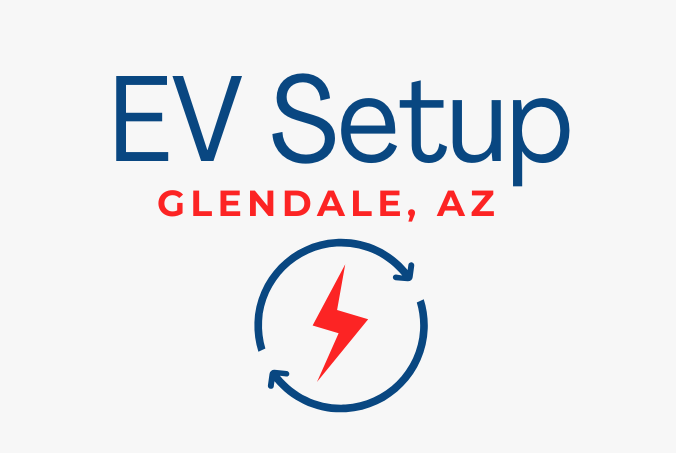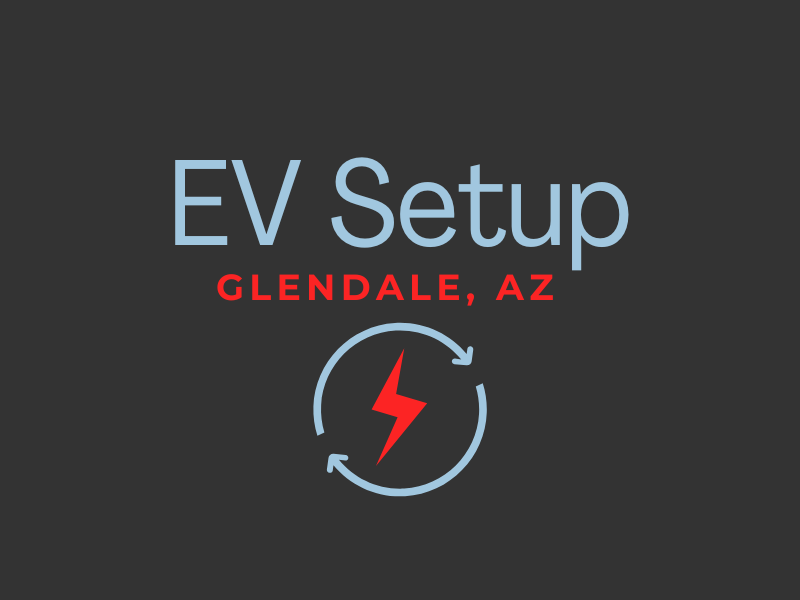Do I need a permit for residential EV charger installation in Phoenix?

Installing a residential EV charger in Phoenix can significantly enhance your home’s convenience and sustainability. To answer the question: yes, you typically need a permit for EV charger installation in residential areas in Phoenix. Understanding the local regulations can save you time and ensure a smooth installation process.
Navigating the permitting process may seem daunting, but being informed can simplify it. This guide will walk you through the necessary steps and considerations to keep in mind, ensuring that you are prepared for a successful installation of your EV charger.
Key Takeaways
- A permit is usually required for residential EV charger installation in Phoenix.
- Hiring a qualified electrician can ensure safety and compliance.
- Familiarize yourself with post-installation requirements and inspections.
Application Procedure for Residential Permits
To start the permit process, homeowners must submit an application to the City of Phoenix’s Planning and Development Department. This application typically includes details such as the charger’s specifications, location, and installation plans.
Homeowners may need to provide:
- Site plan
- Electrical load calculations
- Proposed installation diagrams
It’s essential to check the city’s website for any specific documentation requirements. The application can usually be submitted online, which streamlines the process. The city reviews the application for adherence to zoning and safety regulations, taking about 5-10 business days for initial processing.
Inspection and Approval Stages
Once the application is approved, the next step is the inspection process. A city inspector will assess the installation site to ensure compliance with local codes and standards.
Inspections typically occur in the following phases:
- Rough Inspection: Before wall coverings are installed.
- Final Inspection: After the charger is fully installed and operational.
Homeowners should schedule these inspections through the city’s website or by contacting the appropriate department. If the installation passes inspection, the city will issue a final approval, allowing the EV charger to be used. If not, adjustments may be necessary before rescheduling.
Selecting the Right EV Charger
Choosing the right EV charger is crucial for efficient and safe electric vehicle charging at home. Key considerations include the type of charger that best fits your needs and ensuring compatibility with your vehicle.
Level 1 vs. Level 2 Chargers
Level 1 chargers use a standard 120-volt outlet and are often included with your electric vehicle. They are convenient but slow, typically adding about 3-5 miles of range per hour. Ideal for overnight charging, they work best for those with shorter daily commutes.
Level 2 chargers operate at 240 volts, significantly reducing charging time. They can add about 10-60 miles of range per hour, making them suitable for more frequent charging. Installation may require a dedicated circuit and professional help, but the time savings can be worth it for daily drivers or those with longer distances.
Compatibility With Your Electric Vehicle
Not all chargers are compatible with every electric vehicle. It's important to check your vehicle's charging specifications and connector types. Most EVs use a standard J1772 connector, which allows for broad compatibility with Level 2 chargers.
Some manufacturers offer proprietary chargers that may only work with their models. Verify the charging capacity and speed to align with your EV’s power requirements. It’s also wise to consider future needs, especially if you might upgrade or change your vehicle later. Checking these aspects ensures you select a charger that meets your current and future needs efficiently.
Installation Costs and Considerations
The costs associated with installing a residential EV charger can vary significantly. Factors include the type of charger, required electrical upgrades, and potential incentives that may offset expenses.
Estimated Expenses for Charger and Installation
The average cost for a Level 2 EV charger ranges from $500 to $1,500. In addition to the charger itself, installation costs typically range from $300 to $2,000, depending on factors such as:
- Electrical panel upgrades: If your panel needs an upgrade, expect to pay an extra $1,000 to $3,000.
- Labor costs: Electricians may charge $50 to $100 per hour. Installation can take 1 to 8 hours.
- Permits and inspections: These could add $50 to $500 depending on local regulations.
Potential Incentives and Tax Credits
Federal and state incentives can significantly reduce the financial burden. Notable options include:
- Federal tax credit: You might qualify for a 30% tax credit on the purchase and installation costs, capped at $1,000 for residential installations.
- Local rebates: Some utility companies in Phoenix offer rebates ranging from $200 to $4,000 for residential EV charger installations.
- State programs: Arizona also provides various incentives that may apply depending on your electric provider.
Research available programs to maximize savings on your installation.
Hiring a Qualified Electrician
Selecting the right electrician for your EV charger installation is crucial. It ensures the work is safely and correctly performed, complying with local regulations. Focus on verifying credentials and understanding their approach to code compliance.
Verifying Credentials and Experience
When hiring an electrician, start by confirming their licenses. In Arizona, electricians must hold a valid state license. Check if the electrician has specific experience with EV charger installations, as this knowledge is essential for the job.
Request references and reviews from previous clients. A qualified electrician will proudly share their work history. Also, inquire about certifications that demonstrate specialized training in EV charging systems. Look for electricians who have completed relevant courses or are certified by known organizations.
Ensuring Code Compliance
Compliance with local building codes is non-negotiable for installing an EV charger. A qualified electrician will be familiar with Phoenix's regulations and requirements. They should explain how their work will meet these standards.
Ask about their strategy for inspections and permits. A reliable electrician will guide you through the permit application process and coordinate necessary inspections. This step is vital to avoid any future legal issues related to installation.
Ensure the professional conducts a thorough assessment of your home’s electrical system. This evaluation will help confirm that your home can handle the additional load from an EV charger, adhering to safety standards.
Post-Installation Requirements
Once the EV charger is installed, specific requirements must be met to ensure compliance and optimal functioning. Key areas include the final inspection, necessary documentation, and maintenance practices for the charger.
Final Inspection and Documentation
After installation, a final inspection is often required. This entails verifying that the installation meets local codes and regulations. An inspector will check the electrical connections, grounding, and placement of the charger.
You may need to provide documentation like:
- Installation permits
- Work contracts
- Manufacturer specifications
Keep records of all inspections and approvals, as these may be essential for future maintenance or if any issues arise.
Maintaining Your EV Charging Station
Regular maintenance is crucial for the longevity and efficiency of your EV charging station. Periodic checks of the unit for any signs of wear, damage, or loose connections are recommended.
Consider the following maintenance tips:
- Clean the unit regularly.
- Check for software updates.
- Inspect cables for fraying.
Keeping the charger in good condition will enhance performance and reduce the risk of safety hazards. Consider scheduling professional inspections annually to catch any potential issues early.
Here is how to calculate your vehicle License Tax for Alternative Fuel Vehicles in Arizona.

